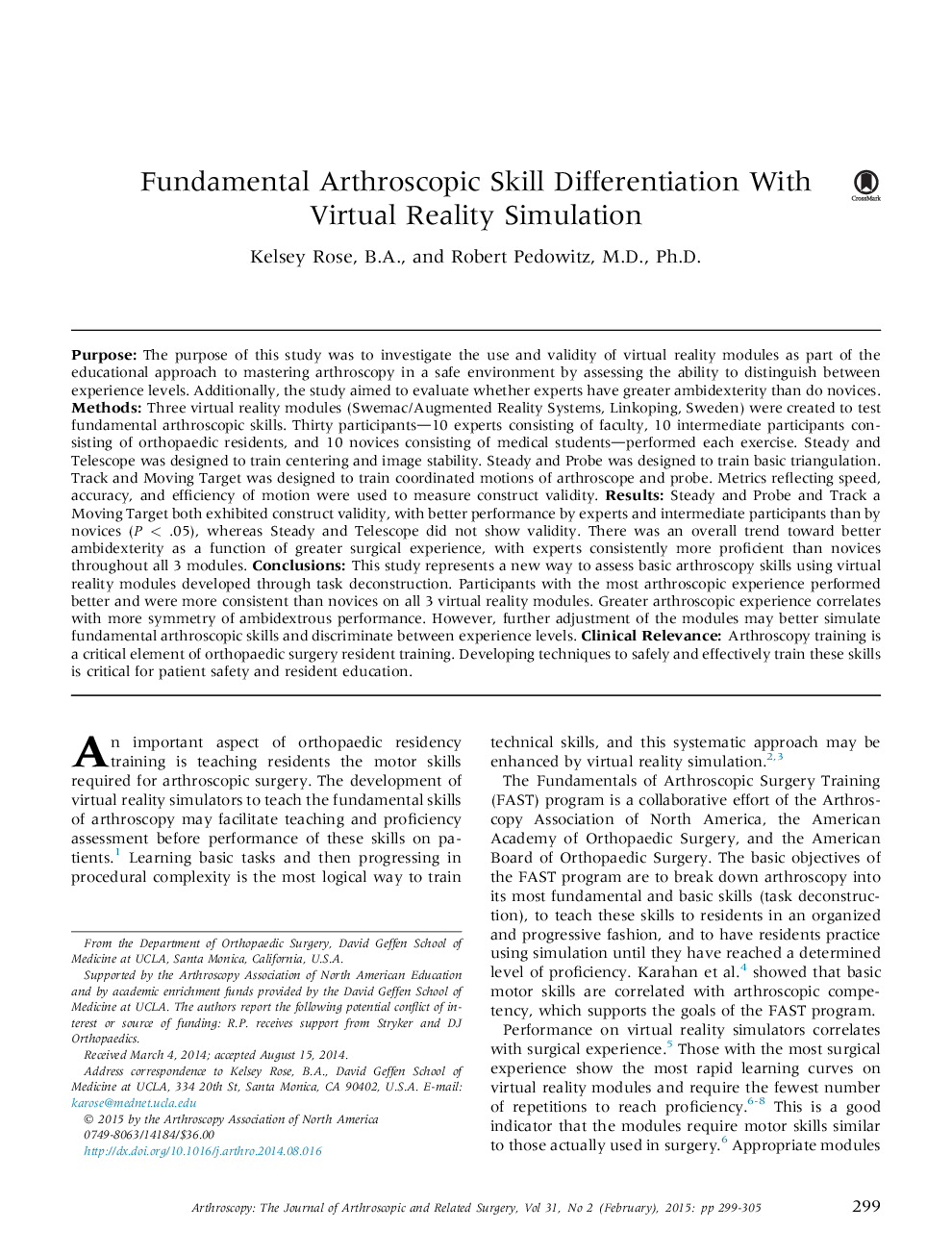| کد مقاله | کد نشریه | سال انتشار | مقاله انگلیسی | نسخه تمام متن |
|---|---|---|---|---|
| 4042474 | 1603487 | 2015 | 7 صفحه PDF | دانلود رایگان |
PurposeThe purpose of this study was to investigate the use and validity of virtual reality modules as part of the educational approach to mastering arthroscopy in a safe environment by assessing the ability to distinguish between experience levels. Additionally, the study aimed to evaluate whether experts have greater ambidexterity than do novices.MethodsThree virtual reality modules (Swemac/Augmented Reality Systems, Linkoping, Sweden) were created to test fundamental arthroscopic skills. Thirty participants—10 experts consisting of faculty, 10 intermediate participants consisting of orthopaedic residents, and 10 novices consisting of medical students—performed each exercise. Steady and Telescope was designed to train centering and image stability. Steady and Probe was designed to train basic triangulation. Track and Moving Target was designed to train coordinated motions of arthroscope and probe. Metrics reflecting speed, accuracy, and efficiency of motion were used to measure construct validity.ResultsSteady and Probe and Track a Moving Target both exhibited construct validity, with better performance by experts and intermediate participants than by novices (P < .05), whereas Steady and Telescope did not show validity. There was an overall trend toward better ambidexterity as a function of greater surgical experience, with experts consistently more proficient than novices throughout all 3 modules.ConclusionsThis study represents a new way to assess basic arthroscopy skills using virtual reality modules developed through task deconstruction. Participants with the most arthroscopic experience performed better and were more consistent than novices on all 3 virtual reality modules. Greater arthroscopic experience correlates with more symmetry of ambidextrous performance. However, further adjustment of the modules may better simulate fundamental arthroscopic skills and discriminate between experience levels.Clinical RelevanceArthroscopy training is a critical element of orthopaedic surgery resident training. Developing techniques to safely and effectively train these skills is critical for patient safety and resident education.
Journal: Arthroscopy: The Journal of Arthroscopic & Related Surgery - Volume 31, Issue 2, February 2015, Pages 299–305
